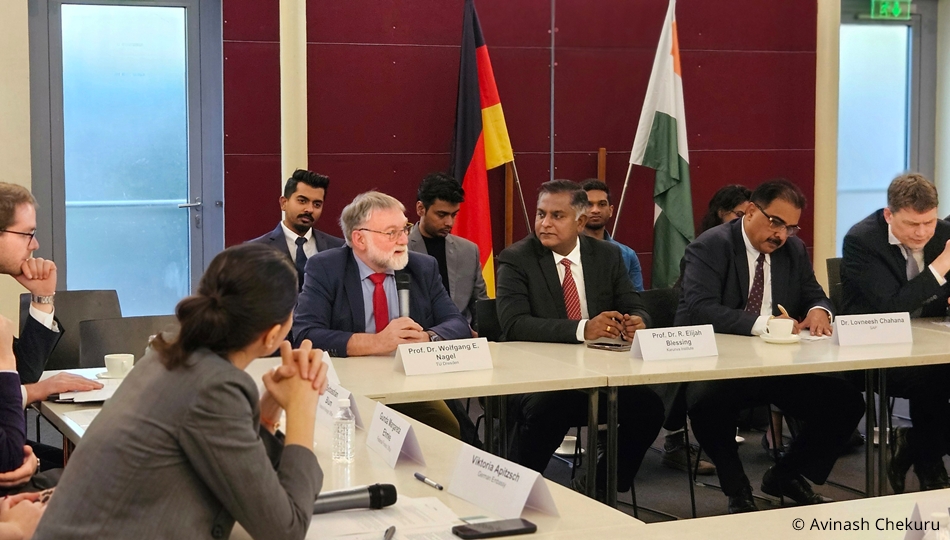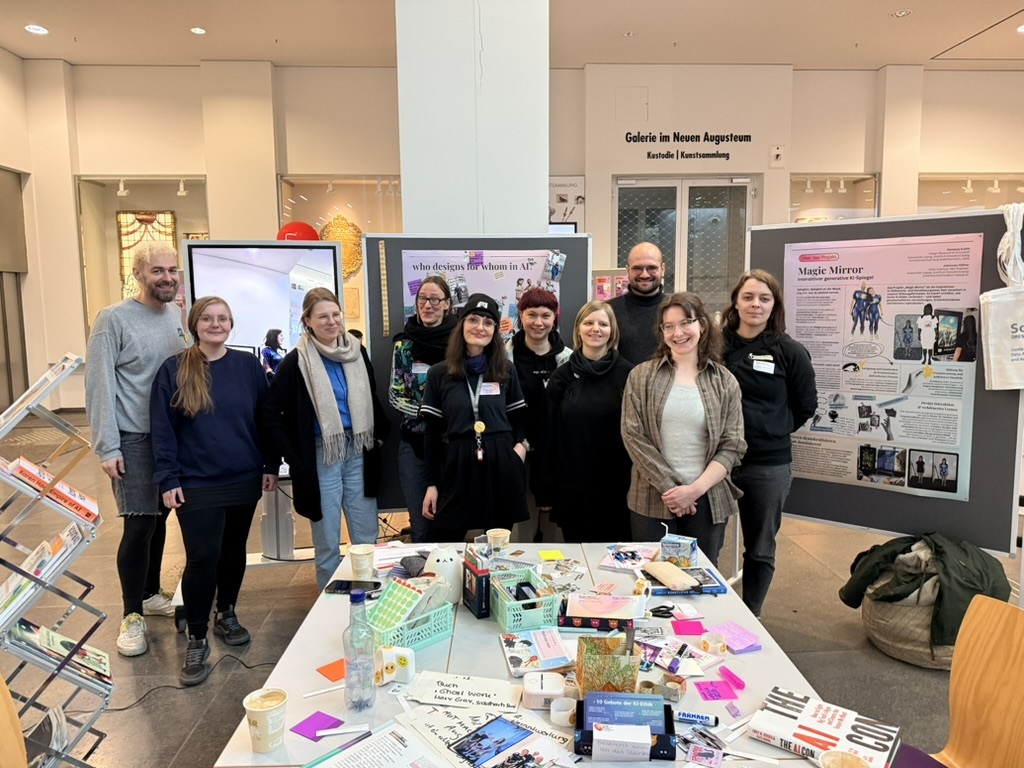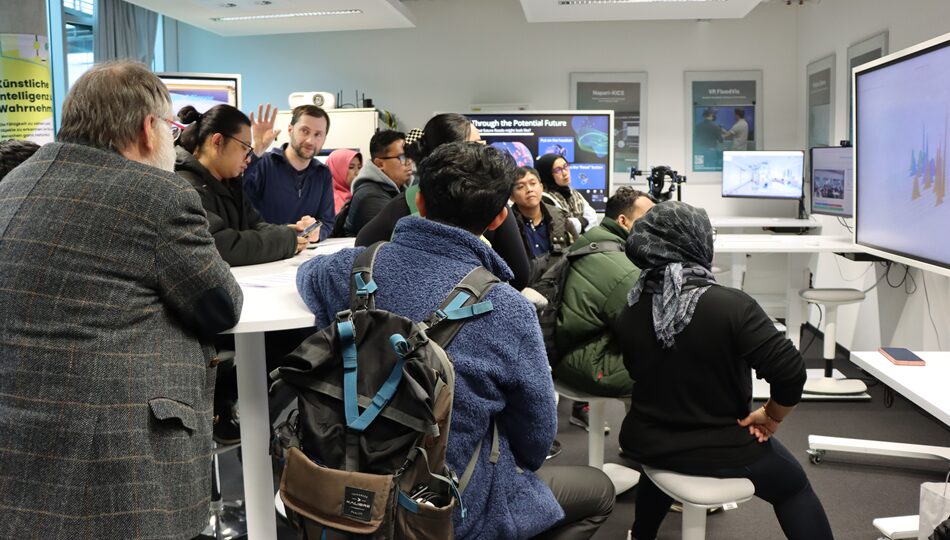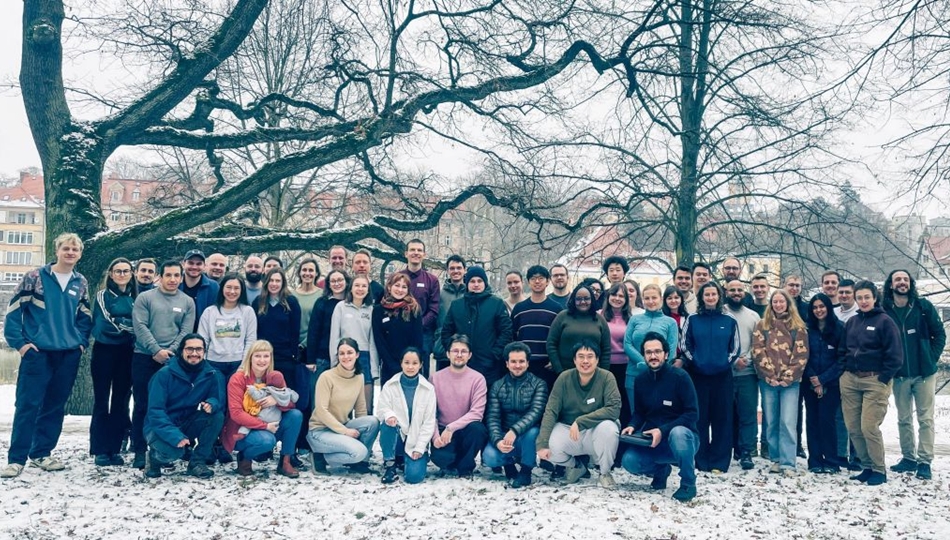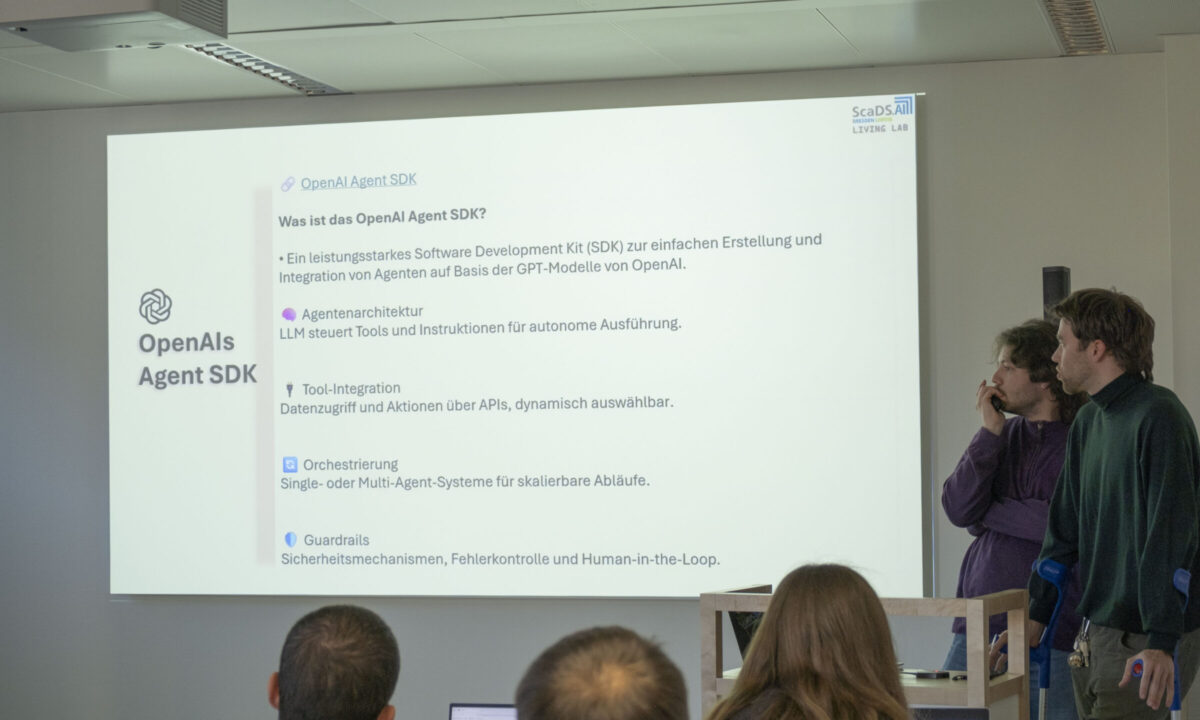
June 1, 2025
AI Agents & Agent Frameworks Meetup Recap: Highlights of Innovation & Interaction

On May 20, 2025, technology enthusiasts, innovators, and experts gathered in the Living Lab Leipzig to explore the developmental potential of AI Agents and Agent Frameworks. The meetup blended keen talks with hands-on building sessions and time to reflect and discuss, leaving attendees informed and inspired.
Event Opening
At 5 p.m., organizer Oliver Welz welcomed the participants and introduced them to ScaDS.AI Dresden/Leipzig. He explained the center’s mission and pioneering work in artificial intelligence, big data, and data analytics. The introduction set the tone for a collaborative discussion on the transformative potential of AI agents.
Talk & AI Insights: AI Agents – Hype or Revolution?
The talk “AI Agents – Hype or Revolution?” explored the evolving narrative around AI agents and questioned whether these technologies represent fleeting hype or mark a widespread revolution that will redefine how tasks are automated and managed.
Historical Background: The Birth of the “Agent”
The session opened with the history of the term “agent” in technology. Early on, the word “agent” was used to describe software entities designed to perform tasks autonomously on behalf of a user. Historically, this is the foundation for the evolution of AI agents from simple automated scripts to sophisticated systems with dynamic capabilities.
Core Characteristics
An AI agent acts independently, managing and updating its internal state without the need for continuous human intervention. It possesses strong social capability, allowing it to interact with other agents or humans via established communication protocols that enable effective collaboration and seamless information exchange. In addition, the agent is highly reactive. It perceives its environment and responds in real time to any changes, ensuring that it remains aligned with external conditions. Furthermore, it exhibits proactivity by not merely reacting but by actively pursuing its goals and taking the initiative to overcome obstacles or seize new opportunities.
Current State: Modern AI Agents
Today’s AI agents work with minimal human oversight. OpenAI even describes them as systems that “fulfill tasks on behalf of users with a high degree of independence,” which starkly contrasts with traditional scripts that strictly follow predefined rules. Modern agents pursue complex objectives by making informed decisions on the best pathways to reach their goals while remaining equipped with interfaces to the external environment, such as sensors in robotics, API connections in software systems, or even natural language inputs. This integration allows them to be continuously aware of and responsive to their surroundings. In 2025, large language models (LLMs) like GPT-4 typically serve as the “brain” of an AI agent, endowing them with robust language understanding, seamless knowledge integration, and strong reasoning capabilities.
Unleashing Orchestration: The Engine of Intelligence
To explain how these modern AI agents operate internally, the talk outlined their layered structure:
- Single Agents as Building Blocks: Each individual agent has a dedicated system-prompt that defines its identity and role.
- Tools & APIs as Interface to the External World: These components allow agents to interact with various systems and data, enabling dynamic integration of external information.
- Orchestration – The Key to Complex and Intelligent Behavior: Orchestration lies at the heart of advanced AI agent frameworks, enabling the integration of multiple processes. The talk explored several orchestration methods:
- Prompt Chaining: A sequential process where each step builds on the output of the previous one, forming a chain of thought that culminates in a final response.
- Routing: Inputs classify and direct to specialized processes that best suite handling specific parts of a task.
- Parallelization: Multiple LLMs working concurrently on separate sub-tasks, and their results synthesize to produce efficient, cohesive outputs.
- Orchestrator-Worker Pattern: Here, a central LLM acts as an orchestrator, delegating tasks to specialized worker-LLMs and then integrating their responses into one intelligent, unified result.
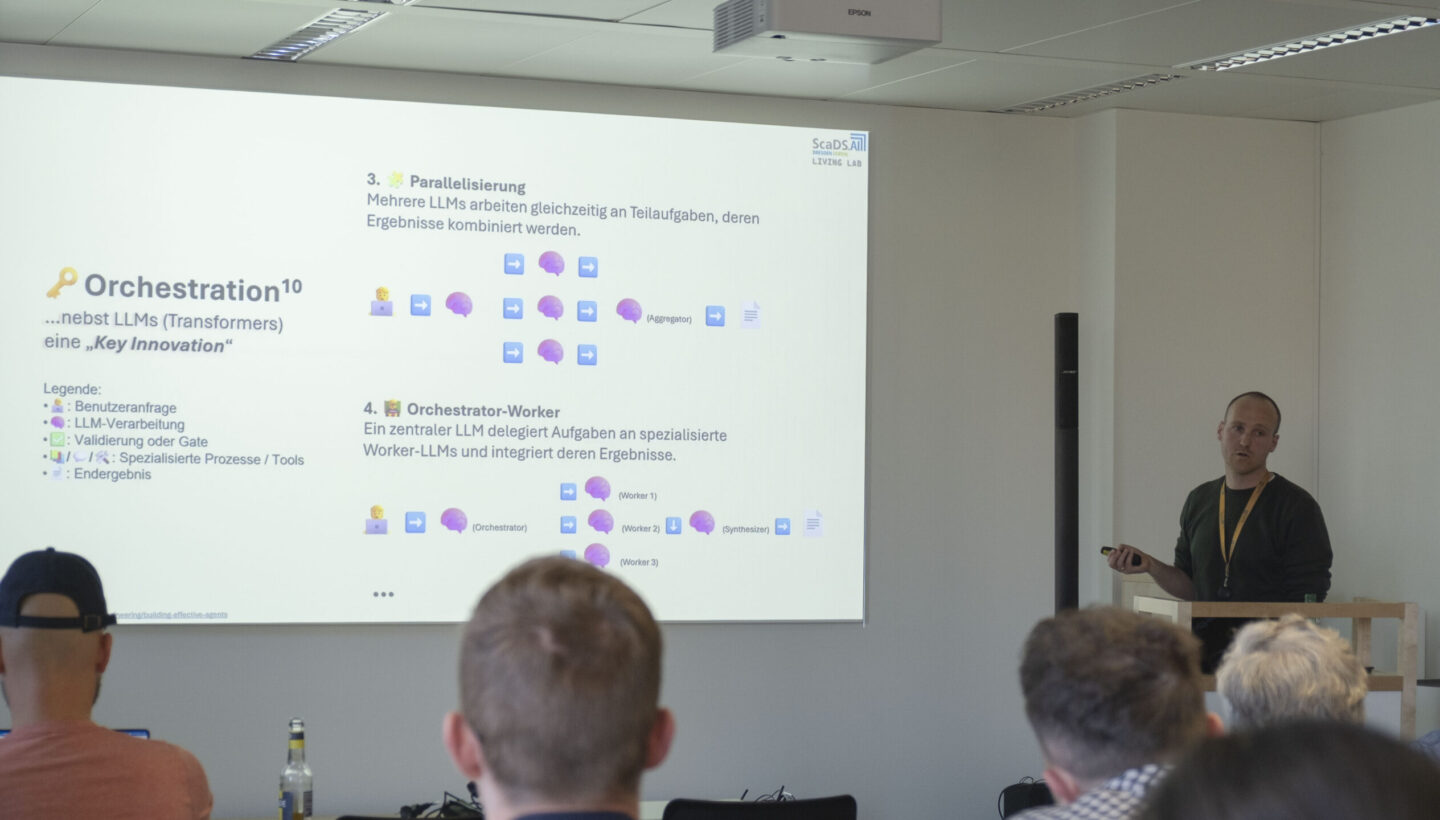
By interweaving the historical context, foundational properties, and modern architectural strategies, the presentation painted a picture of AI agents today. This layered evolution – from early automated “agents” to today’s autonomous planners powered by orchestration and LLMs – underscores the debate:
- Are we witnessing just another technological hype?
- Or is AI truly revolutionizing how systems think, act, and collaborate?
Interactive Workshop: Building Your First AI Agent(s)
Following an engaging talk, the meetup transitioned into an immersive interactive workshop. Guided by experienced facilitators, the participants embarked on a hands-on journey. Presenting two options to pose beginner-friendly tools to create agents capable of automating simple tasks.
- OpenAI Agents SDK: A coding-focused environment for experimenting with multi-step processes.
- Langflow: A visual, drag-and-drop tool that makes agent workflow design intuitive.
The session concluded by addressing whether these capabilities signal a true revolution in intelligent automation. While some aspects of the technology might seem like a natural evolutionary progression of existing systems, the combination of orchestration, aggregation, and optimized workflows is leading to unprecedented levels of autonomy and efficiency.
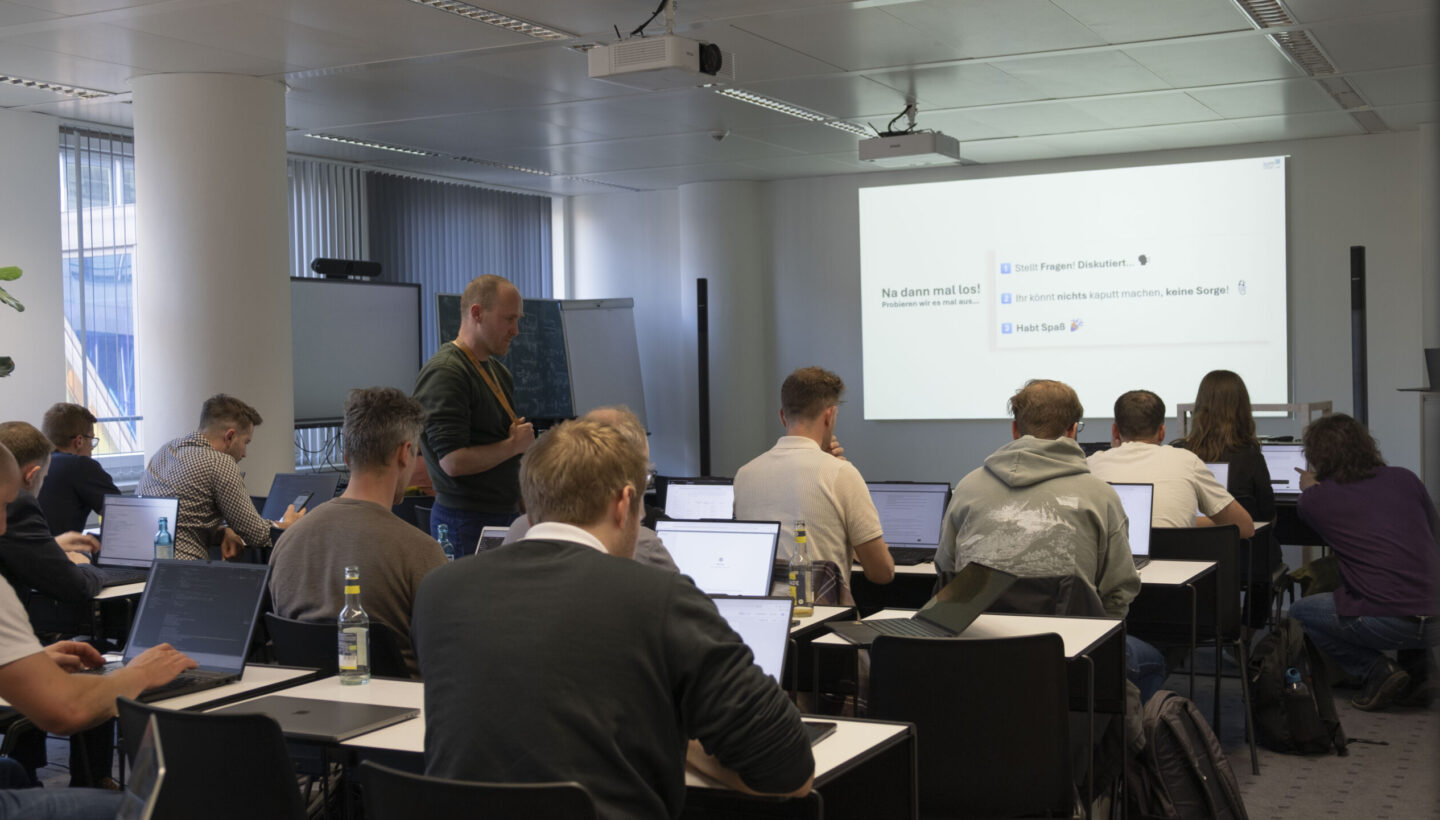
Networking and Farewell: Connecting and Reflecting
This Meetup was a celebration of innovation and glance into the future of AI-driven automation. Whether you are captivated by the probing question, “Hype or Revolution?”, or excitedly engaged in building your first AI agent, the event underscored a core truth: the journey into intelligent automation is best shared.
For those inspired by these insights, consider exploring further opportunities to participate in interactive sessions and workshops on AI. Consequently, the Meetup at ScaDS.AI Dresden/Leipzig is a monthly event series and amplifies our collective potential. Learn more and register for the next event.

